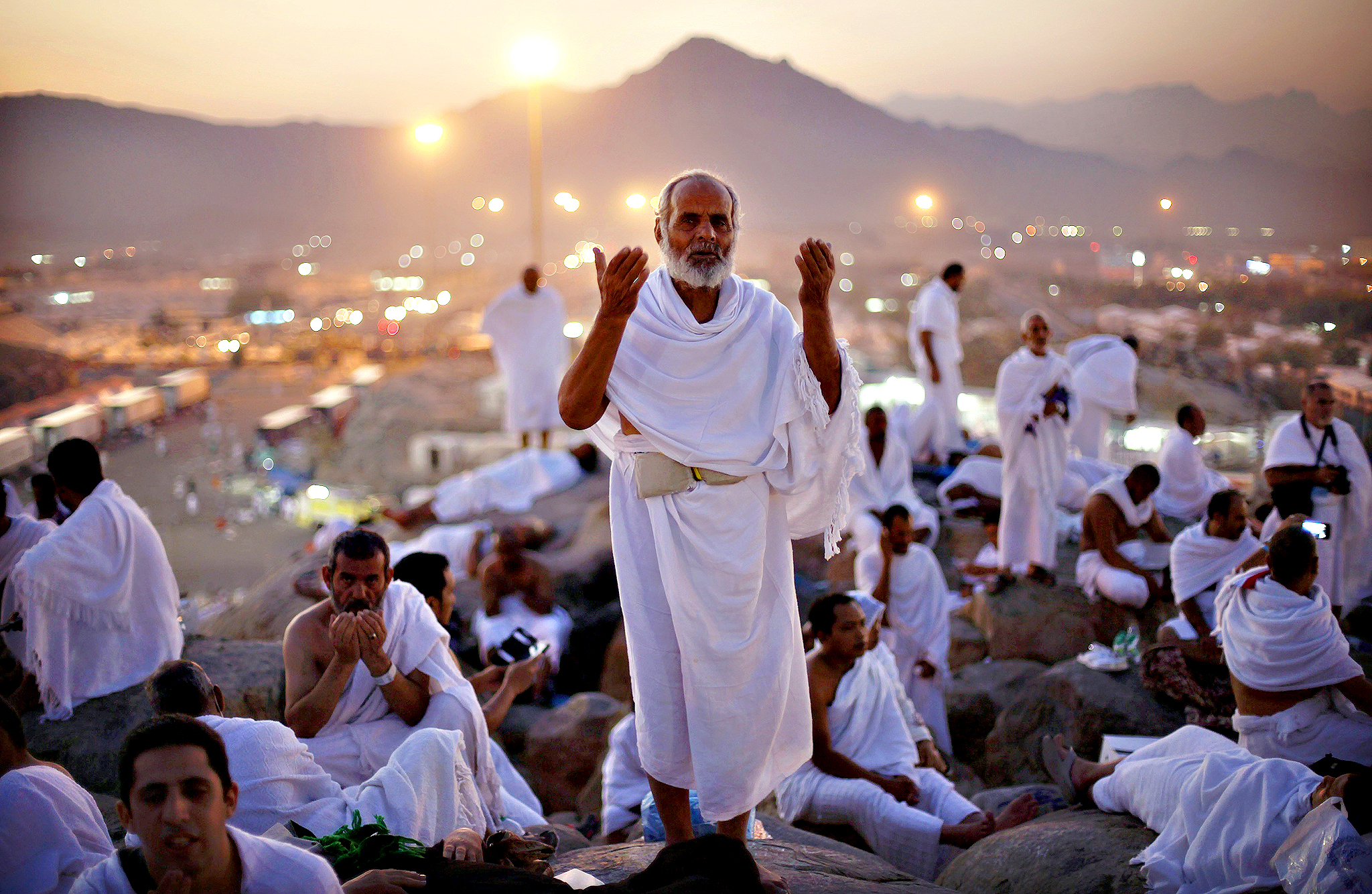The Call of the Haj
بِسۡمِ
ٱللهِ ٱلرَّحۡمَـٰنِ ٱلرَّحِيمِ
In his book of tafsir, “From the Gardens of Tafsir”,
Shaykh Ibrahim ibn ‘Abdullah Niyas al-Kawlakhi (q.s.) spoke of this ayat:
سُوۡرَةُ آل عِمرَان
إِنَّ أَوَّلَ بَيۡتٍ۬ وُضِعَ لِلنَّاسِ لَلَّذِى
بِبَكَّةَ مُبَارَكً۬ا وَهُدً۬ى لِّلۡعَـٰلَمِينَ (٩٦) فِيهِ ءَايَـٰتُۢ
بَيِّنَـٰتٌ۬ مَّقَامُ إِبۡرَٲهِيمَۖ وَمَن دَخَلَهُ ۥ كَانَ ءَامِنً۬اۗ
وَلِلَّهِ عَلَى ٱلنَّاسِ حِجُّ ٱلۡبَيۡتِ مَنِ ٱسۡتَطَاعَ إِلَيۡهِ سَبِيلاً۬ۚ
وَمَن كَفَرَ فَإِنَّ ٱللَّهَ غَنِىٌّ عَنِ ٱلۡعَـٰلَمِينَ (٩٧)
The first
House (of worship) Appointed for men was that at Bakkah: full of Blessing and
of guidance for all kinds of beings: In it are signs manifest; (for example),
the Station of Abraham; whoever enters it attains security; pilgrimage thereto
is a duty men owe to Allah ― those who can afford the journey; but if any deny
faith; Allah stands not in need of any of His creatures. (Surah Ali ‘Imran:96-97)
All prophets and Messengers have
performed haj except for four: Hud (a.s.), Swalih (a.s.), Luth (a.s.), and
Idris (a.s.). All other prophets and Messengers have
performed haj of this house. If it was a simple house to which the prophets
and swalihin repeatedly came to from
the beginning of time until our time, then that would have been sufficient for
establishing its barakah; it is even
more so established given the fact that it is the House of Allah (s.w.t.).
When Prophet Ibrahim (a.s.) finished building it, Allah (s.w.t.) Ordered him to call for the haj to this house. So he said, “How will I call them while they
are non-existent, still in their forefathers loins?”
Allah (s.w.t.) Said, “Your responsibility is to call. As for Making them hear, then it is My Responsibility.”
He then stood on the mountain of Abu
Qubays and said, “O people, your Lord has indeed built a house, and He Calls
you to perform haj to it, so do
perform haj.”
All the hujjaj then replied from all corners of the world, notwithstanding
their state of non-existence. Anyone who
replied on that day must absolutely perform haj.
As for the one who did not respond, he
will not perform haj even if material
means are widely available to him. The
one who replied once will perform haj
once; the one who responded twice will perform haj twice; and similar is the case for the one who replied numerous
times.
As for us, the ummah of Muhammad (s.a.w.),
we do not perform any action devoid of meaning and without understanding
anything of its significance. Haj is the equivalent of a king calling
someone to be his guest. The habit of
eminent people is that when they are called to meet kings, they clean
themselves and wear new garments out of reverence for the king. You will find that the one who intends for haj remove those habitual garments which
make up his usual dress. He then takes a
ritual bath, wears a robe, a waist wrap and sandals only. When a king
calls a guest and the latter arrives, he calls him to his private quarters and
shakes hands with him. So, we come to
the Sacred House of Allah (s.w.t.)
and the Hajr al-Aswad is the Right Hand
of Allah (s.w.t.).
Now, regarding Swafa’ and Marwah,
Mina and ‘Arafat, it is the kings’ habit when they invite a personality and
entertain him that they will come out with him for a pleasure walk to their
places, orchards, and properties. That
is the significance of going out to Mina and ‘Arafat. As for the return upon completion of the haj, then that is the banquet day which
is the day of sacrifice, ‘Iyd al-‘Adhha’.




Comments
Post a Comment
Thank you for taking the time to share our thoughts. Once approved, your comments will be posted.